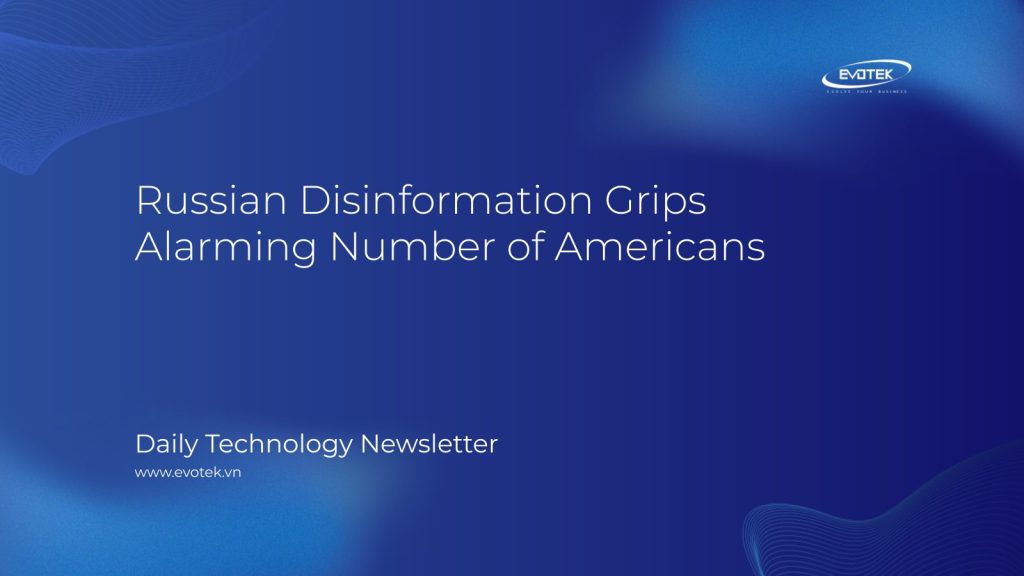A recent survey reveals a disturbing trend: a significant portion of Americans are falling prey to Russian disinformation and other online falsehoods.
The study, conducted by YouGov and commissioned by NewsGuard, presented a nationally representative sample of 1,000 Americans with 10 widely circulated false claims. These included narratives originating from or heavily promoted by Russian media outlets.
Participants were asked to identify each claim as “True,” “False,” or “Not Sure.” The results indicate a worrying level of susceptibility to disinformation campaigns impacting views on health, medicine, elections, and international conflicts.
The findings showed that a staggering 78% of respondents believed at least one of the false claims, with less than 1% correctly identifying all ten as false.
Examples of widely believed falsehoods include:
- A quarter of respondents believed that Ukrainian officials stole up to half of U.S. aid money.
- Over half incorrectly believed Ukraine sold U.S.-donated weapons to Hamas.
- Fewer than half correctly identified as false the claim that COVID-19 vaccines have killed millions worldwide; 1 in 5 believed it to be true.
NewsGuard emphasizes the COVID-19 vaccine claim is based on inaccurate analysis of unverified reports following vaccination. This analysis was conducted by an individual with no medical background who has previously made false claims about COVID-19 vaccines.
Belief in disinformation appears to be widespread across political affiliations. While Republicans were more likely to believe Russian disinformation (57.6%) compared to Democrats (17.9%) and those unaffiliated with either party (29.5%), the overall figures highlight a vulnerability across the political spectrum.
The Russian government is actively investing in spreading misinformation within the U.S. The Justice Department has taken action against individuals and organizations involved in these activities, including seizing internet domains used to influence elections.
According to then–attorney general Merrick Garland, the seized sites contained Russian propaganda designed to undermine international support for Ukraine, promote pro-Russian interests, and influence voters in the U.S. and other countries.
NewsGuard warns that Russian disinformation efforts are intensifying and becoming more sophisticated.
“In the ongoing battle between fiction and reality, fiction—much of it created by Russia’s robust disinformation machine—appears to be winning,” the organization stated.

 日本語
日本語 한국어
한국어 Tiếng Việt
Tiếng Việt 简体中文
简体中文